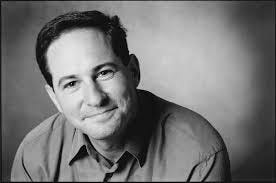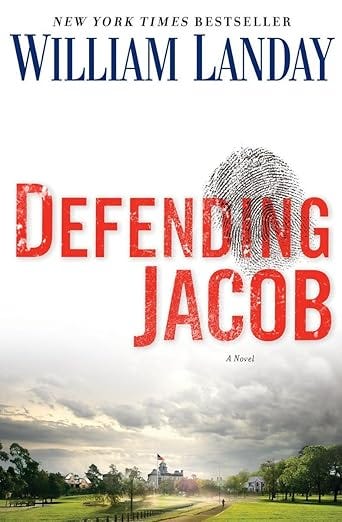"He would get up in front of the jury box shaking his head and pursing his lips like a schoolmarm or a priest, and in every juror there stirred a secret desire to vote against him."
When it comes to thrillers I'm like a nightmare dinner guest, brimming with odd dietary restrictions and obscure allergies, forever gagging into his napkin. If the crime is too cosy and complex; if the crime is too sadistic and frosty; if the language is too ornate and pleased with itself; if the language is too clubbed-over-the-head plain; if the writer seems, like me, to have derived his sense of police-work largely from having watched a great deal of Law & Order; if the writer has clearly worked in law enforcement but has insufficiently sorted the interesting from the merely true... Other than that, I eat everything!
This pickiness isn't because thrillers are worse than literary novels. It's because I enter the world of a thriller already in a state of slight guilt, with a feeling that I should be spending these hours chipping away at Proust, or Dostoyevsky, or Jesus Christ I've never even read Middlemarch! Eating a bad dinner is unpleasant, but you'll at least pick up some stray nutrients. Eating a bad dessert is ridiculous.
So a thriller has a very few pages to persuade me that it will walk the absurdly fine line between all of my prohibitions. William Landay's Defending Jacob managed it on page 2.
And that promise held up. Defending Jacob (which came out in 2012, and was adapted into a blah semi-prestige miniseries a few years ago) is the best legal thriller I've ever read. Better than any John Grisham, even the best of which have the feeling of premises injected with character-shaped blobs of plastic. Better than Anatomy of a Murder, which I found dismayingly talky and slow. Better even than Presumed Innocent, with which Defending Jacob shares a good deal of DNA (and which contains the single largest plot error I have ever encountered in a published book; feel free to email me if I haven't yet cornered you at a party to rant about it).
The setup of Defending Jacob is that a fourteen-year-old boy in an idyllic New England suburb has been murdered. And Andy Barber, the local father who would ordinarily prosecute the case (he's a long-time assistant district attorney), is disqualified — because his son Jacob happens to be the accused. This is a fine and fraught premise. But every book on the Best New Thrillers table has a fine and fraught premise. Watch how Landay manages the prose.
The book opens (after a promisingly obscure and chewy epigraph) with this:
In April 2008, Neal Logiudice finally subpoenaed me to appear before the grand jury.
An ordinary sentence, but the deposition-esque specificity of the date (novelists often feel claustrophobic committing to a particular recent year), the proximity of the two unspellable words (Logiudice, subpoenaed), and the casual procedural confidence (embedded in this sentence is knowledge of what a grand jury is, and of how people come to appear before one, and the fact that such summonses can for various reasons be delayed) — these things suggest a promising seriousness of purpose, an impatience with frippery. We are already straightening in our wooden jury chairs.
[Logiudice's] mouth was overstuffed with teeth; he had to force it shut, like a full suitcase, which left him with a sour, pucker-mouthed expression. I used to get after him not to make this face in front of juries — nobody likes a scold — but he did it unconsciously.
Having presented us with his law license in sentence one, Landay here demonstrates that he can actually write: this is a solid piece of lightly Dickensian character-sketching, a physical trait presented (with the slight cruelty of the observant) as a manifestation of personality. My skepticism is beginning to teeter — he knows court procedure; he knows how to use a semicolon. And then he writes:
He would get up in front of the jury box shaking his head and pursing his lips like a schoolmarm or a priest, and in every juror there stirred a secret desire to vote against him.
And my resistance collapses completely. Because in this one sentence he re-confirms his legal expertise (jury box), he demonstrates a sensitivity to the sound of prose (note the King James-ian word order: in every juror there stirred) — and, most important, he leads us into the private chamber within each juror's mind (a secret desire to vote against him). One of the joys of a thriller is access — here we are with the cops on a stakeout; here we are in the fluorescent chill of the medical examiner's room. Landay, thanks to his having been a district attorney, will give us that. But he shows here, with these few words about how jurors respond to Logiudice's helpless puckering, that he will also give us access to the heads that hover within all those authentically drawn settings. We will get to read court transcripts and sit in on sessions of witness prep and we will get to absorb that vital novelistic nutrient: a sense of how it might feel behind another pair of eyes. Middlemarch can wait.





Ben, I subscribed initially to read these ostensibly outstanding sentences, but what keeps me coming back is your own writing. It is so alert and fresh. Thank you.
I’m going to read Defending Jacob. But you really do need to read Middlemarch.